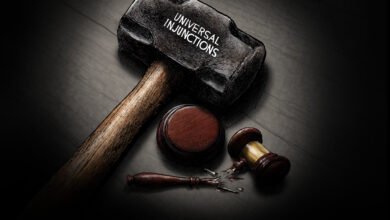Vindicated!

After the most expensive recall election in Wisconsin history, Scott Walker has soundly beaten left wing efforts to eviscerate his agenda that has returned economic vigor to the state of Wisconsin. What should have been a titanic battle between the two competing narratives, one being deficit spending and dependency peddling advocated on the left and lowering taxes and cutting spending to balance the budget on the right, was a landslide victory for Governor Walker.
The governor wiped out a $3.6 billion dollar deficit without tax increases, reduced property taxes for the first time in twelve years, and has dropped the unemployment rate in the state to 6.7%. He has given local school districts the flexibility to renegotiate health pans and benefits, which has produced millions in savings. When choice and competition are interjected into the market, costs are usually reduced, therefore, a dividend for the American consumer. A concept that is anathema to the left. Hence, mandated health care coverage via Obamacare. Like Chris Christie, Scott Walker took a stand for what he believed in and what he thought was right for his state. Throughout this entire debacle, Scott Walker has stuck to his principles that provided him the passion to see through to absolute victory. A passion that was also exuded by his supporters in this election. It proves that the strong core that conservatism produces in its followers will undoubtedly defeat the waffled convictions of the institutional left.
As for the unions in Wisconsin, and that of the larger labor union movement, I’m hoping that this will be the death knell concerning their influence in the American political process. At the very least, tonight was a serious blow to unionized labor and demonstrated their reduced capability in executing successful political operations. According to Phil Kerpen, it’s pretty clear:
that Walker will be able to serve at least the rest of his term through 2014 and keep building on the progress made with his education and collective bargaining reforms. More broadly, Walker was able to implement such reforms in a state that President Obama won by 14 points in 2008, and ultimately win popular acceptance after an initially fierce backlash. It means that governors in states throughout the nation should no longer be afraid to take on public sector unions.
Of course, Walker’s victory is about more than public sector unions. What Walker has demonstrated is that voters will ultimately reward politicians for showing political courage on the big issues if they have the resolve to see their policies implemented and watch them succeed. Enthusiasm for Walker among his supporters was off the charts because people are more willing to fight for a leader who has actually taken a stand. As the United States faces a looming fiscal crisis due to prior generations’ unwillingness to tackle runaway spending on the entitlement programs of Social Security, Medicare and Medicaid, wobbly-kneed politicians in Washington should look to Walker’s triumph in Wisconsin for inspiration.
Lastly, I would also like to thank DNC chair Debbie Wasserman Schultz for nationalizing the recall and for putting Wisconsin in the toss-up column for general election. Needless to say, it was a very good “dry run” for Scott Walker, Mitt Romney, and the Republican Party concerning their approach to balancing budgets and getting the economy back on track. I can’t say the same for Barack Obama.
Live Blog: Wisconsin Recall Election Results – Live Coverage
(h/t Rich Mitchell)




